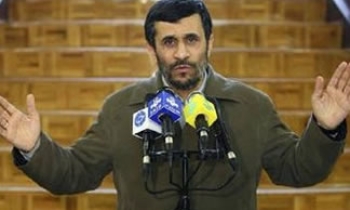While giving his consent to the landmark Right to Information Act on Monday evening, President A P J Abdul Kalam has reminded Prime Minister Manmohan Singh of maintaining the sanctity of communication between the Head of State and the Head of Government.
A consistently vocal advocate of openness and transparency in governance, Kalam has put in writing to Singh that communication between the President and the Council of Ministers, including the Prime Minister, should not come under the purview of the Act.
He wants this communication to remain privileged as he feels that this rarely affects the people at large. He has also pointed out that this provision is guaranteed by the Constitution.
In his letter, Kalam has urged Singh to continue with Presidential immunity and suggested to him to exclude documents in the President’s office from the proposed law. The President had given a green signal to the Act after Rajya Sabha had sent the Bill, passed by both houses, for the Rashtrapati Bhawan’s ratification 10 days ago.
This comes in the wake of the controversy over the Nanavati-Shah Commission, probing post-Godhra communal riots, seeking privileged documents pertaining to communication between then President K R Narayanan and then Prime Minister Atal Behari Vajpayee.
Rashtrapati Bhavan, in fact, refused to send the documents citing the same privilege clause.
The President has also asked the PM to consider exclusion of notings that senior bureaucrats make on various files from the Act. He apparently said that these notes should remain classified and confidential so that government officials do not feel hampered or tied down in taking crucial decisions.
----------------------------------------
The points President underlined and what Govt can do
In his note to PM, President said:
Communication between him and PM should remain confidential
Rashtrapati Bhavan documents are privileged
Keep official notings of senior bureaucrats out of the law lest it hamper decision making
Only Centre should frame rules, not states otherwise there will be confusion
Kalam has given his assent so, technically, the Bill is now law. It can’t go back to Parliament. The Govt can bring amendments.
----------------------------------------
Kalam said that only the Centre should be allowed to frame rules under the proposed law and that State governments should be kept out of it. According to the Act, both Centre and the states can make rules on its various provisions, as to how the accountability of different government departments will be fixed. Kalam noted that since Right to Information is a Central Act, only the Union Government should make rules to ensure its smooth working and implementation.
Kalam was of the view that the multiplicity will cause confusion, with different states framing their own rules. For proper functioning of the law, uniformity is required.
Although the government is technically not bound to follow the President’s advice–since he gave his assent in the first place–the Law Ministry will have to consider Kalam’s suggestions before it notifies the Act. Senior officials said that government may have little options but to incorporate Kalam’s advice as it is coming from the Head of State.
The proposed legislation – seeking to promote openness, transparency and accountability in administration – entitles every citizen to have access to information controlled by public authorities. The legislation also covers state authorities and NGOs substantially funded by government.
The much-awaited Act is expected to introduce far-reaching changes in the process of governance, making it much more transparent and accountable. After the President gave his assent, only the notification to be issued by the Law Ministry is awaited.









